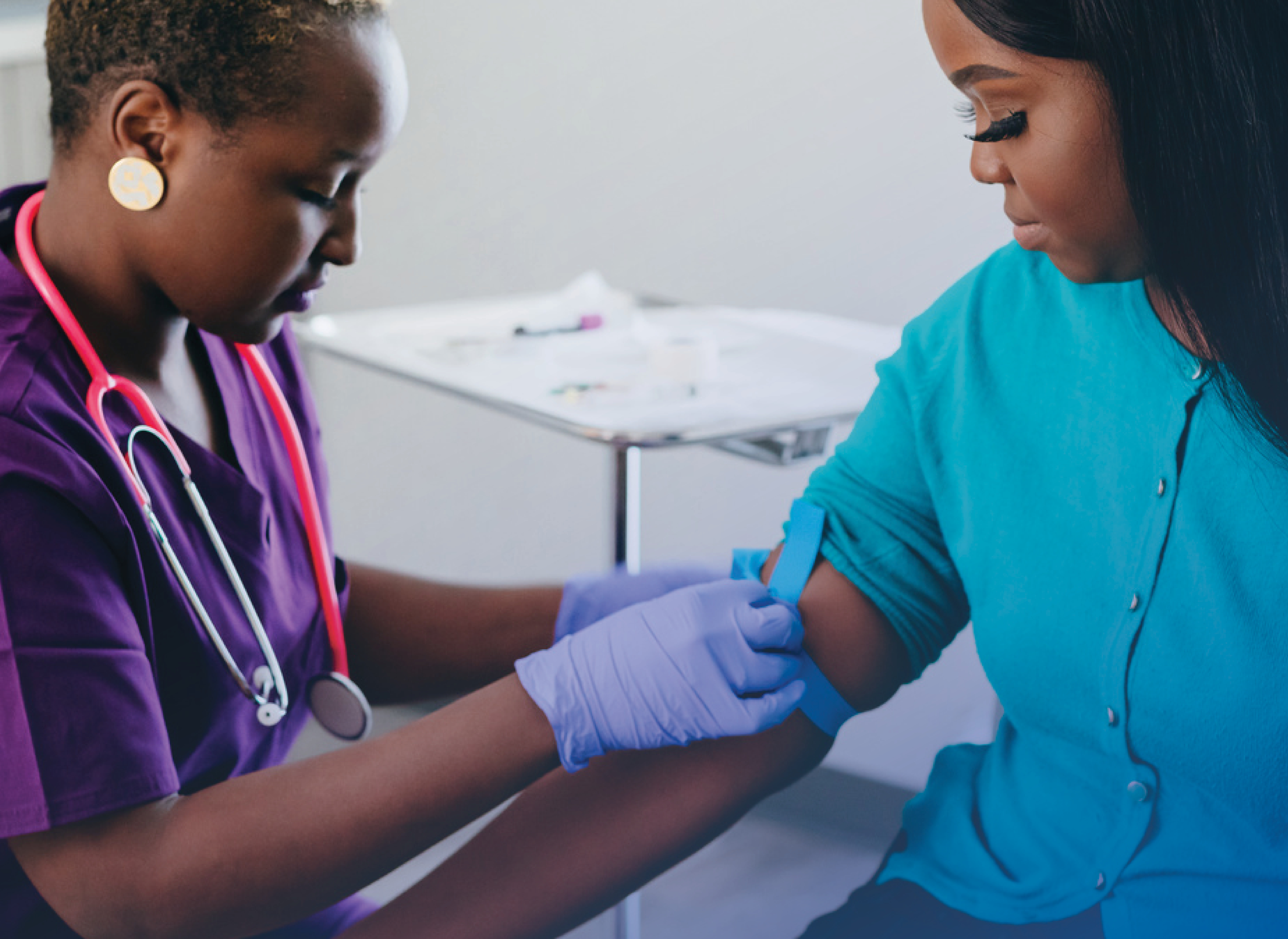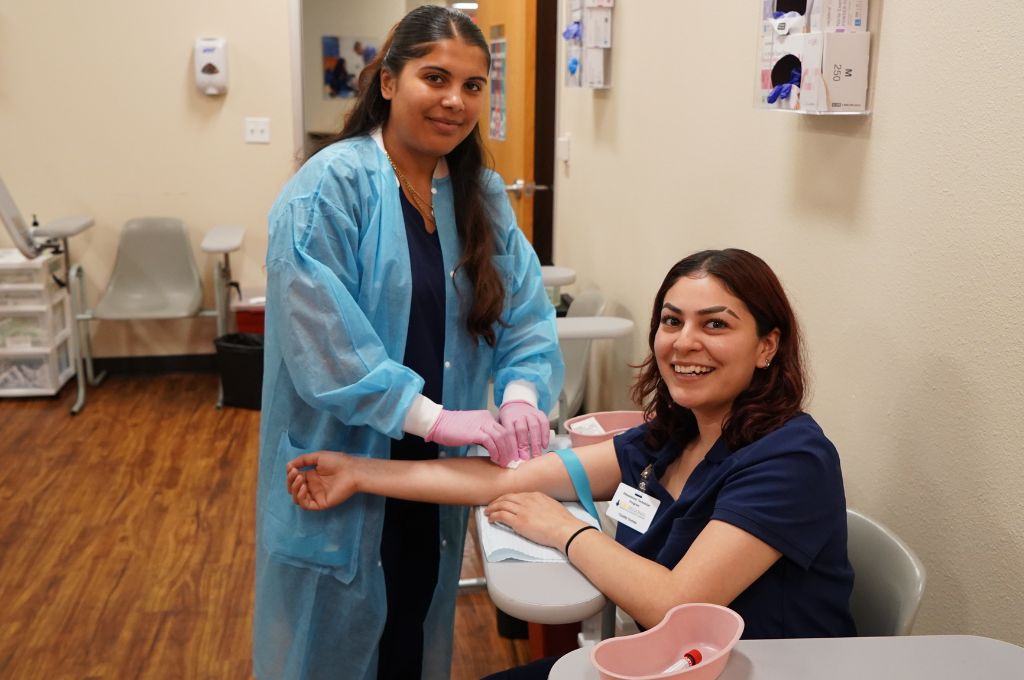Timeline Explained Everything About Completing a Phlebotomy Training Course
Timeline Explained Everything About Completing a Phlebotomy Training Course
Blog Article
The Path to Qualification: Comprehending the Phlebotomy Educating Course Journey and Its Significance
As you take into consideration the course to certification in phlebotomy, it's important to understand the function you'll play in health care. Your training will certainly cover important abilities, from blood collection techniques to patient communication.

The Function of Phlebotomists in Healthcare
Phlebotomists play an important role in the medical care system, working as the important web link between individuals and crucial diagnostic testing. You'll carry out blood attracts, guaranteeing samples are collected properly and securely. Your know-how aids in diagnosing medical problems, monitoring health and wellness, and assisting therapy decisions.
In your daily interactions, you'll require to develop trust with patients, making them really feel comfortable during what might be a stressful experience. You're responsible for classifying and managing samples thoroughly to avoid contamination or errors, which can affect examination outcomes.
Yet, you'll usually function alongside medical professionals and registered nurses, connecting important info concerning clients' problems. Your function is basic in preserving the process in health care setups, making certain timely and precise outcomes. By understanding your abilities, you contribute meaningfully to client treatment, making you an essential component of the medical team. Welcoming this duty is key to your success as a phlebotomist.
Introduction of Phlebotomy Training Programs
When checking out phlebotomy training programs, you'll discover numerous kinds developed to fit various timetables and learning styles. Each program helps you create crucial skills like blood collection and individual interaction. Recognizing these choices is key to choosing the ideal path for your career.
Kinds of Educating Programs
Several sorts of training programs are readily available for those looking to end up being skilled in phlebotomy. You can select from certificate programs, which typically last a couple of months and concentrate on important abilities. There are also diploma programs that give an even more complete education, usually lasting as much as a year. If you're looking for a much deeper understanding, an associate level in a related area could be the appropriate fit. On-line training courses supply versatility for those stabilizing job or family members dedications, enabling you to study at your own speed. Additionally, some medical facilities and facilities supply on-the-job training programs, supplying functional experience while you learn. Whatever path you pick, each program intends to outfit you with the needed abilities for a successful phlebotomy profession.

Secret Abilities Created
Understanding phlebotomy requires a set of key skills that are created via detailed training programs. You'll learn technological skills like correct vein option, needle insertion, and blood collection strategies. These hands-on techniques guarantee you can do procedures safely and effectively. Furthermore, communication abilities are fundamental; you'll need to interact with individuals, discuss procedures, and put them comfortable. Understanding anatomy and physiology is vital, as well, as it aids you locate blood vessels and comprehend the body's response to blood draws. You'll acquire understanding of safety methods and infection control, guaranteeing you keep a sterile environment. Each of these abilities is necessary for your success as a licensed phlebotomist, making you a beneficial property in any health care setting.
Trick Components of a Phlebotomy Course
In a phlebotomy course, you'll concentrate on vital topics that prepared for your future profession. You'll involve in hands-on training that permits you to apply what you've learned in real-world settings. Both the curriculum and functional experience are crucial for your success as a phlebotomist.
Core Curriculum Overview
While pursuing a phlebotomy training program, you'll come across a curriculum designed to outfit you with basic skills and knowledge. Phlebotomy school. This curriculum typically includes composition and physiology, concentrating on the circulatory system and understanding blood parts. You'll likewise discover around different kinds of blood collection approaches, including venipuncture and capillary leak techniques
In addition, infection control and safety procedures are essential elements, guaranteeing you know just how to keep a sterilized environment. You'll study patient interaction, highlighting interaction and compassion, which are critical for alleviating patient anxiety.
Hands-On Training Experience
Obtaining hands-on experience is an essential part of your phlebotomy training program. This useful training enables you to use what you have actually discovered in a real-world setting, boosting your skills and self-confidence. Phlebotomy Classes Near Me.
Furthermore, you'll get the chance to connect with individuals, which is essential for creating your interaction skills. This combination of technological effectiveness and interpersonal skills is important for your success as a licensed phlebotomist. Eventually, hands-on training is where concept satisfies practice, solidifying your expertise and readiness for qualification.
Qualification and Licensing Needs
Before you can start your profession in phlebotomy, it is crucial to understand the qualification and licensing demands that differ by state. The majority of states need phlebotomists to hold a qualification from a recognized organization, such as the National Phlebotomy Organization or the American Society for Scientific Pathology. These qualifications normally include passing an exam that evaluates your knowledge and abilities in the area.
In enhancement to certification, some states have details licensing requirements. You might require to finish a particular variety of hours in clinical method, send proof of training, or undergo a background check. It is essential to investigate your state's policies to see to it you fulfill all required standards.
Remaining educated regarding these demands not only assists you protect a setting yet also improves your reliability as a specialist. By satisfying these needs, you'll be well on your means to a successful occupation in phlebotomy.
Hands-On Training and Practical Experience
Hands-on training and sensible experience are vital parts of your phlebotomy education and learning, as they enable you to use theoretical expertise in real-world situations. During your training, you'll participate in monitored venipuncture, find out appropriate strategies, and become aware of numerous blood collection devices. This straight involvement is essential for developing your confidence and honing your skills.
You'll work closely with knowledgeable professionals that can lead you via the subtleties of person communication and example handling. Each practice not only strengthens your understanding yet click here to read also prepares you for the busy atmosphere of healthcare setups.
In addition, many programs include scientific turnings, allowing you to experience varied setups, from hospitals to outpatient centers. This direct exposure helps you adapt to different obstacles and patient needs, guaranteeing you're well-prepared for your future role. Welcome these chances, as they're vital to becoming an experienced and caring phlebotomist.
Challenges Faced Throughout Training
While getting hands-on experience is crucial, it's vital to identify the challenges that can occur see this here during your phlebotomy training. In addition, understanding the skills required for blood attracts takes technique; you may have a hard time with technique initially.
Time management can likewise be a hurdle, as balancing theory, functional sessions, and personal commitments can feel challenging. You might deal with varying discovering speeds amongst your peers, leading to sensations of self-doubt if you believe you're falling back. Adapting to the various individualities of trainers can be difficult, as each might have an unique training style.
Recognizing these challenges early can prepare you for success and aid you establish durability throughout your training journey.
Profession Opportunities After Qualification

As you acquire experience, you might also take into consideration concentrating on locations like pediatric or senior citizen phlebotomy, catering to certain client demands. Some phlebotomists choose to progress their occupations by becoming lab specialists or going after additional education in healthcare areas.
In addition, your accreditation my company can lead to duties in training or managing new phlebotomists, permitting you to share your expertise. With the healthcare market continuously expanding, your abilities will certainly constantly be in demand, leading the way for a secure and satisfying profession. Accept the opportunities awaiting you!
Regularly Asked Questions
What Is the Common Period of a Phlebotomy Educating Program?
Phlebotomy training programs usually last around 4 to eight weeks. You'll take part in hands-on technique, class direction, and on the internet discovering. Completing this training prepares you for accreditation and a fulfilling profession in health care.
Are Online Phlebotomy Courses Available?
Yes, on-line phlebotomy programs are offered. They use flexibility and comfort, allowing you to research at your very own rate. Simply verify the program is accredited to meet certification demands and get beneficial abilities for your career.
How Much Does Phlebotomy Training Commonly Price?
Phlebotomy training usually sets you back in between $700 and $2,500, depending upon the program and place. You need to think about aspects like program size, included materials, and hands-on experience when choosing the ideal training for you.
What Are Usual Requirements for Phlebotomy Training?
Common prerequisites for phlebotomy training typically include a senior high school diploma or GED, booster shots, and a history check. Some programs might likewise call for basic healthcare knowledge or certifications, guaranteeing you're gotten ready for hands-on training.
Can I Function While Finishing My Phlebotomy Training?
Yes, you can work while finishing your phlebotomy training. Many pupils balance jobs with their research studies, yet ensure to handle your time successfully to ensure you meet both work and training commitments efficiently.
Report this page